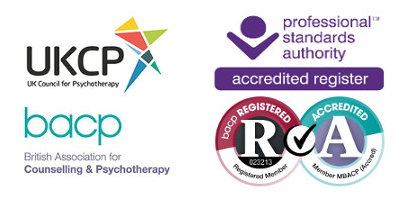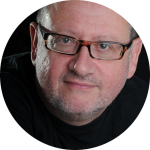Psychotherapy in West London with Marcus Gottlieb
One-to-one psychotherapy offers a safe and effective way to work through the many emotional, practical and psychological issues that life can place in your path.
When we first meet (and sometimes before we meet) you’ll generally begin by outlining your concerns and explaining what’s brought you to considering therapy at this particular juncture. I’ll give you my honest feedback, and then we’ll discuss how we can work towards achieving your goals and objectives.
Therapy can help with a great many issues, and I use a range of tried and tested psychotherapeutic methods and approaches, fitting your aims and the issues you bring, and being sensitive to your preferences, needs and personality. Broadly speaking the intention is that, through our work, you’ll build awareness of your patterns, form a clearer sense of yourself, see your situation from new perspectives and start to formulate and articulate your own answers, laying solid foundations for positive change.
Is Psychotherapy what I need? Is it right for me?
There is a large body of evidence that therapy and counselling can be of value to people from any background, in any walk of life and at any stage of life.
Many challenges that people commonly face now are a function specifically of our modern lifestyle. Through therapy you can be helped to engage in a healthier, more positive way, with such features of contemporary society as:
- The stress and overwhelm caused by the demands of a busy personal and professional life
- Relationship breakdown or conflict within complex, blended families
- Long-term treatment for formerly terminal medical conditions
- Sudden economic or technological shock causing redundancy or similar changes in circumstance
- Addiction to substances or activities, including nowadays screens, electronic devices, the internet or social media
Sometimes we need to take a closer look at the historic dimension, tracing the roots of your difficulties in your early life experience, often for example where you’re grappling with:
- Lack of self-belief and low self-confidence
- Matters of sexuality or sexual identity
- Phobias or obsessions
Can Therapy Help Me With My Issue?
Any issue can be brought to therapy, and some of the more regularly recurring ones that I work with can be seen on the right of this page (or below, if you are viewing this on a small screen).
Therapy isn’t always used to resolve issues as such, so much as to explore areas that people have questions about, such as what gives their life meaning and value, or its use can be to support you through periods of transition, when you’re moving inexorably on into a new life phase.
Some Questions I Often Get Asked About Therapy
The terms are sometimes used interchangeably. A common way to differentiate them is to say that ‘counselling’ is single-issue, short-term work, whereas ‘psychotherapy’ is longer and more in-depth. In this sense, a psychotherapist’s training takes many years because it requires an understanding of organic, developmental processes, and psychotherapy focuses on clients’ long-term relationship with themselves and others, working with the deeper layers of how a person is present and how that relates to the past, present and future.
Our work is private and confidential, and even the fact that you’re seeing me is confidential. However, I am legally obliged to break confidentiality if I consider you are in danger of causing serious harm to yourself or others, or in cases of terrorism. Also, like all psychotherapists, in order to be transparent about how I work and so as to maintain a healthy perspective, I am regularly ‘supervised’ by another psychotherapist: in that process, clients are not identified. Let me add, my work is covered by the Data Protection Act, and any notes I might keep will not have clients’ names as part of them.
What we talk about depends on what you want to bring to the session.
When asked on his deathbed what was the most important lesson he’d learned during his life, the writer Aldous Huxley said, ‘To be kinder to myself’. So I ask anyone, what’s actually wrong with ‘indulging the self’? Especially when going to therapy can also validly be seen as taking charge and taking responsibility for ourselves. Besides, if we find ways to make our life work better, those round us are quite likely to benefit too!
Dependency is a crucial aspect of how we bond, how we relate to other humans. But there’s a balance between the drive for connection and the drive for independence, and that’s an area we often need to explore and where we can develop our own answers.
Mostly, the answer is No. Advice is usually abundantly available from friends, family, media, the Church, the Government etc. When I refrain from advising, it is not because I am deliberately wishing to frustrate you, though you may feel it that way. Actually, it can feel liberating and affirming being encouraged to find your personal truth and forge your own unique path.
Therapy is not always a comfortable process, so being unhappy or dissatisfied with one particular session, or a run of sessions, may not be an indicator that the process isn’t working.You may find yourself, at a deeply felt level, evaluating whether you are getting what you want or need. I support that, for example by having periodic review sessions.
Some clients give some thought to what they are going to say at their next session. But that’s not a requirement. It’s OK just to come and see what emerges. Some people do like to have ‘homework’, and we can talk about that.
No. I don’t avoid eye contact with you.
Some people get what they need in just a few sessions, whereas many people find it useful to work over a longer period of time. It is very individual, and is between the two of us to decide. You may stop whenever you want to, but we’ll keep it under review. I would class 6-12 sessions as brief or ‘time limited’ therapy. Anything over 6 months is what I would call ‘longer term’ work.
Usually by agreement between us, and with one or more finishing sessions to wrap things up.
Research shows that the two most important elements in the effectiveness of a course of therapy are (a) how motivated the client feels, and (b) to what extent the particular therapist and client ‘click’. The type of therapy is rather less important. In addition, most therapists now work across a range of methods and approaches.
Anything! Human experience is extraordinarily varied, so the following isn’t an exhaustive list, but it may be helpful if I mention some topics that people have presented to me:-
- Stress
- Low self esteem
- Loss & Mourning following the ending of something significant - relationships, career, your youth
- Bereavement & Grief following the death of someone
- Relationship struggles
- Family conflicts
- Addictions
- Compulsive behaviour
- Trauma
- Abuse
- Bullying
- Professional, work and career issues
- Excess anger, losing your temper
- Obsessions
- Phobias
- Sexual difficulties
- Sleep disorders
- Eating disorders
- Powerlessness
- Lack of control
- Anxiety
- Panic
- Lack of confidence
- Feeling directionless or helpless
- Depression
- Frustration, stuckness, lack of satisfaction
- Burnout
- Ageing
- Dealing with racism
- Psychosomatic symptoms - ME, CFS (Chronic Fatigue Syndrome), IBS (Irritable Bowel Syndrome)
- Behaviour change
- Unresolved issues from the past
- Boarding school recovery
- LGBT issues
- Lack of assertiveness
- Loneliness, isolation
- Major life events
- Lack of optimism
- Transitions, and managing change
- Overwhelm, loss of boundary
- Feeling ill at ease
- Feeling disconnection, lack of meaning, invisibility or formlessness
A dream is a fascinating, alive, rich source of information, full of possibilities for change and evolution. It is the body speaking to us. In preference to interpreting the symbolic content of dreams, I tend to work with them in a formative way, with a particular focus on what is growing or trying to take shape.
Aaron T. Beck devised CBT in the 1960s, to help us identify irrational, unhealthy thoughts and refute them. Useless or frustrating and unproductive behaviours are addressed through techniques such as modelling, role play and reinforcement strategies. The underlying principle is that, for better or for worse, children learn by observing and imitating, and poor mental health is a function of having observed and imitated poor role models.
I generally find CBT methods work best with anxiety attacks. My style of therapy is quite behaviourist in any event. Thus, in other words, CBT is integrated into the range of tools and modalities I draw on to meet any particular person’s needs.
You can find more answers to your Frequently Asked Questions about Therapy & Counselling on the Fees & Questions page



